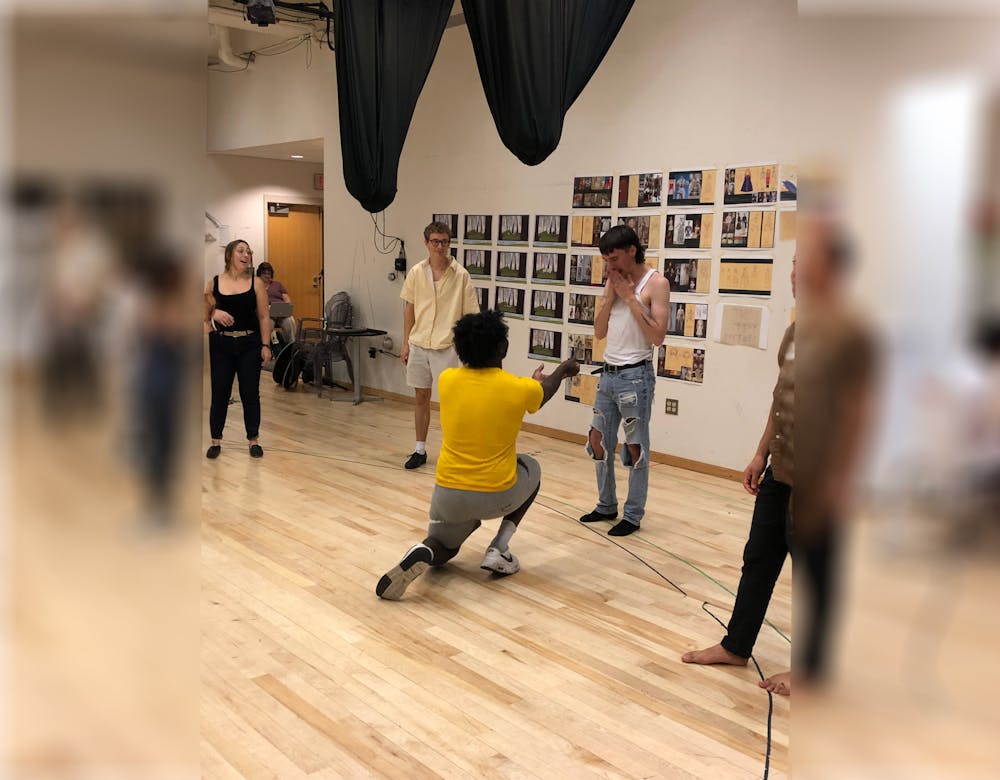“Orlando” will be performed from Sept. 29 to Oct. 7 in the Ruth N. Halls Theatre located inside the Neal-Marshall Black Culture Center. The play is an adaptation of Virginia Woolf’s novel of the same name. Tickets are $15 for students and children and $25 for adults. They can be purchased here.
The title of the 1928 novel is appended by “A Biography,” a reference to the fact that the novel’s main character was inspired by Vita Sackville-West. According to Time Magazine, Sackville-West was an eccentric writer as well as a lover and friend of Woolf’s.
[RELATED: 30th annual Lotus Festival to be held later this month]
According to the show’s director, Lauren Diesch, Sarah Ruhl first adapted the book for the stage in the 1990s. The story consists of the titular character’s 300-plus-year life, whose first 30 years are spent living as a man, and the rest, a woman.
Diesch said the play explores themes of self-actualization and gender fluidity in a fantastical way, following Orlando’s adventures and lovers throughout their life. A reflection of Sackville-West, Orlando spends the entire play working on a single epic poem.
Although gender expression is something of a hot button issue today, it was not as widely known when Woolf first published her book. Despite this, Diesch said much of the language in the play rings as true now as it did then.
“Gender identity and gender expression has always been an important part of our human selves,” Diesch said. “These conversations that we currently have around nonbinary folk or trans folk are really conversations and experiences that have existed throughout the millennia of human existence.”
[RELATED: A piece of Venezuela in Bloomington]
Diesch highlighted the timelessness of this story. From its origin in the 1920s through its adaptation in the 1990s and its continued performance in the 2020s, the material has been germane for nearly a century, contrasting the belief that gender fluidity is a contemporary phenomenon.
She said the stage adaptation makes some departures from the novel but keeps some important elements, such as the narrative voice, which manifests itself in the play as a large chorus. The production’s lighting designer, Mads West, said the dynamism and movement of the ensemble proved a unique challenge.
“I’m approaching this more like how we light dance rather than how we light a typical play,” they said. “They’re devising a lot of the movement as they go; I know there’s one scene where the ensemble members are acting as furniture, for instance, so it’s been interesting working with that kind of movement.”
[RELATED: COLUMN: Demi Lovato's ‘Revamped’ is a rock rebirth of classic hits]
As a gender non-conforming person, West said seeing this sort of story on stage is a refreshing change. They echoed Diesch’s sentiment about the rhetoric that tries to keep the historical existence of transgender people hidden, emphasizing their excitement to see that sort of representation in a period-specific work.
They said pre-production for the show began in the spring, but the production itself has only recently started up. Despite the time gap, West said collaboration between the crew members has been robust, with a consistent exchange of concepts and ideas, and that this cooperation has been one of their favorite parts of the production so far.
“Hopefully we can show kindness to the individual winding paths that we’re all on, and also to ourselves as we stumble into who we are,” Diesch said. “Hopefully it doesn’t take 300 years for everyone, but it might, and that’s okay, too.”




